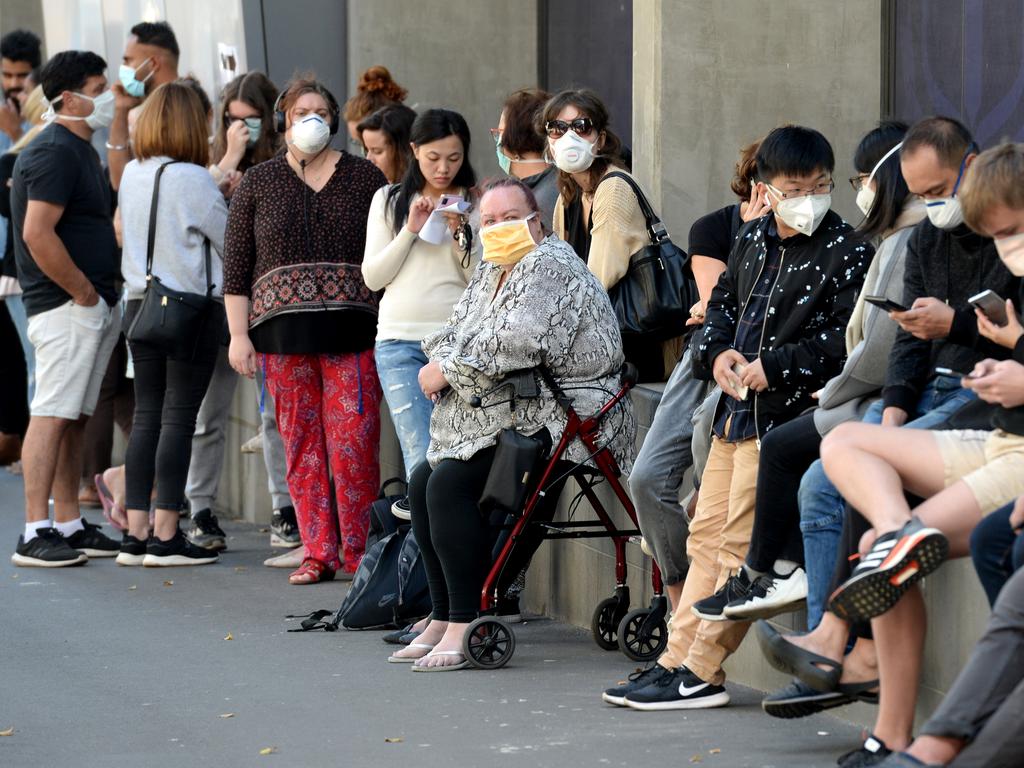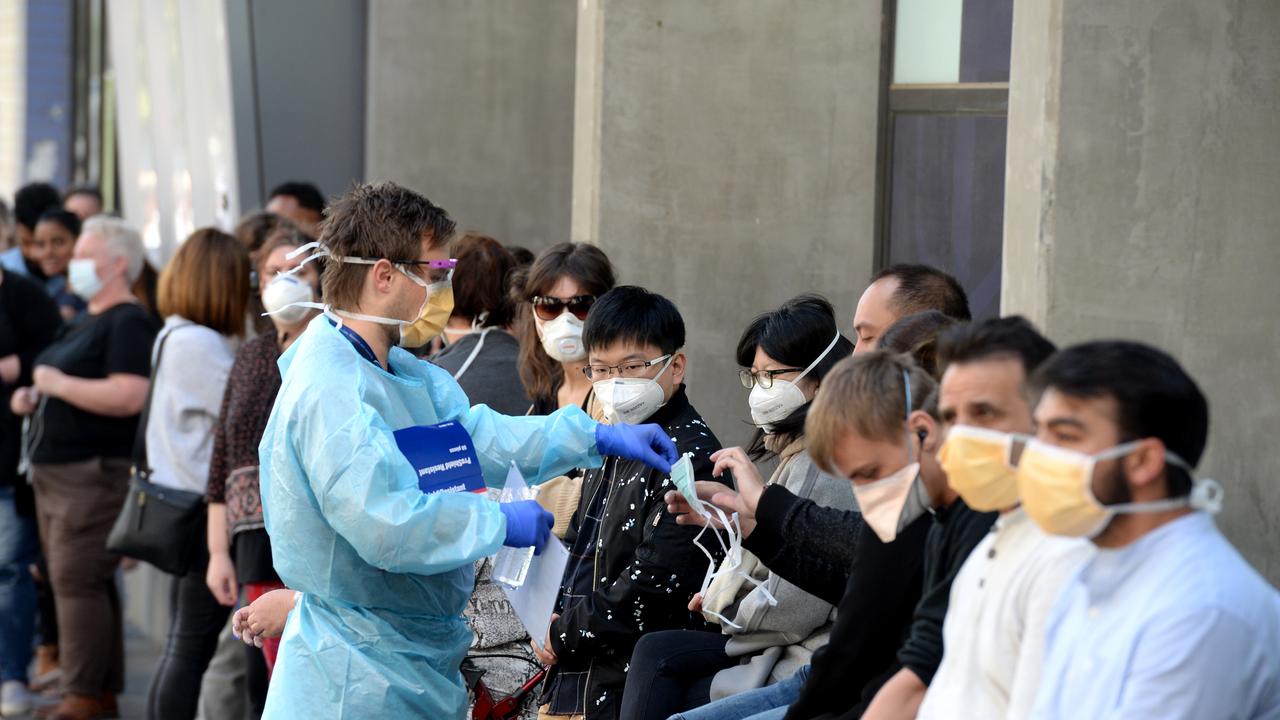‘It’s going to get worse very, very quickly’: Thousands of coronavirus cases in Australia could overwhelm hospitals within weeks
Australian hospitals could be overwhelmed by thousands of coronavirus cases within weeks, amid growing calls to ban public gatherings.

Australian hospitals could be overwhelmed by thousands of coronavirus cases within weeks, experts say.
As the number of confirmed cases rose to 116 overnight and huge queues of patients waited to get tested at dedicated hospital coronavirus clinics in capital cities, there are fears Australia’s health system will not be able to cope based on the experience of other affected countries, where COVID-19 cases have doubled every six days.
At that rate, there could be more than 3200 cases in Australia within a month.
“Basically the doubling time of the epidemic is six days,” biosecurity expert Professor Raina MacIntyre from the UNSW’s Kirby Institute told The Australian. “So it’s going to get worse very, very quickly. If it becomes widespread, there is the potential for the health system to be overwhelmed.”
READ MORE: Follow the latest coronavirus updates and death toll
It comes as doctors call for far more testing to assess the spread of the virus, which experts from Johns Hopkins University in the US this week said typically results in symptoms five days after infection, rather than what was believed to be a much longer 14-day incubation period used as a basis for quarantine measures.
“The bigger question here is, who should we test beyond the rigid criteria?” Melbourne GP Dr Vyom Sharma said yesterday. “The miscommunication has been abhorrent, it has been dangerous, and I can guarantee there are people who should have been tested who haven’t been.”
In a bid to prevent the system being clogged up with unnecessary tests, the federal government is maintaining that only those who have recently returned from overseas or who have had contact with someone who has tested positive should get tested.
“If you’ve been in contact with somebody who has been diagnosed, if you have been in a high-risk area, and you show symptoms, then that is when you should be seeking testing,” Health Minister Greg Hunt told Today.
The government last night outlined its $2.4 billion response to the coronavirus outbreak, including free telehealth services and up to 100 pop-up testing clinics able to handle 75 patients a day.
The government in coming days is expected to announce private sector involvement in providing pathology services and new advice on the testing of healthcare workers.

Meanwhile, the Australian Medical Association’s WA division says serious consideration should soon be given to banning mass gatherings and closing all schools to stop the spread of the coronavirus, echoing comments by a Sydney emergency department worker who yesterday called for widespread quarantines.
AMA WA President Dr Andrew Miller said he understood politicians were trying to prevent panic but he was concerned preparations for a pandemic were progressing too slowly.
“What we’re worried about with the frontline healthcare staff is we will get too many cases at once and be overwhelmed,” Dr Miller told reporters on Tuesday. “Things could change dramatically in the next few weeks if this virus does the same thing here as in Italy.”
He said the community needed to “get ahead of the game now” to control the spread.
“One way of getting ahead of this curve would be to close the schools — we think that’s something that should be under serious consideration very soon. The kids stay healthy (but) they get out there and spread it around.”
Dr Miller said he didn’t believe the Melbourne Grand Prix should go ahead on Sunday, given it involved many overseas visitors who won’t serve a quarantine period.
WA Health Minister Roger Cook acknowledged a heightened sense of anxiety in the community but labelled Dr Miller’s commentary unhelpful, saying plans were in place to deal with ill students and the state was a long way off having to cancel sporting and other events.
Within four hours of opening on Tuesday, more than 450 people attended three new coronavirus clinics at Perth hospitals. There were similar scenes at the Royal Melbourne Hospital.
PLAN TO TACKLE CORONAVIRUS
• $2.4 billion to deal with health impacts.
• Medicare item so health services can be delivered by audio or video to people with symptoms at home.
• Respiratory clinics.
• National communications campaign.
FEVER CLINICS
• Up to 100 ‘pop-up respiratory clinics’ set up across Australia at a cost of $205 million to test those concerned they may be sick.
• Will divert people with mild or moderate symptoms away from emergency departments and GPs.
• Clinics staffed by doctors and nurses will be able to see up to 75 patients a day over six months.
MEDICARE ITEM
• A new item will be created at a cost of $100 million, so people at home in self-isolation and quarantine can access health services and reduce the risk of exposure to others. Will start Friday and be fully bulk-billed.
• If someone has a chronic disease, like a lung condition, and is at risk if they contracted the virus, they could consult their GP via Skype or FaceTime.
COMMUNICATIONS CAMPAIGN
• $30 million campaign to start this week, using television, radio, print, digital, social media, public transport, shopping centres and doctors’ waiting rooms.



